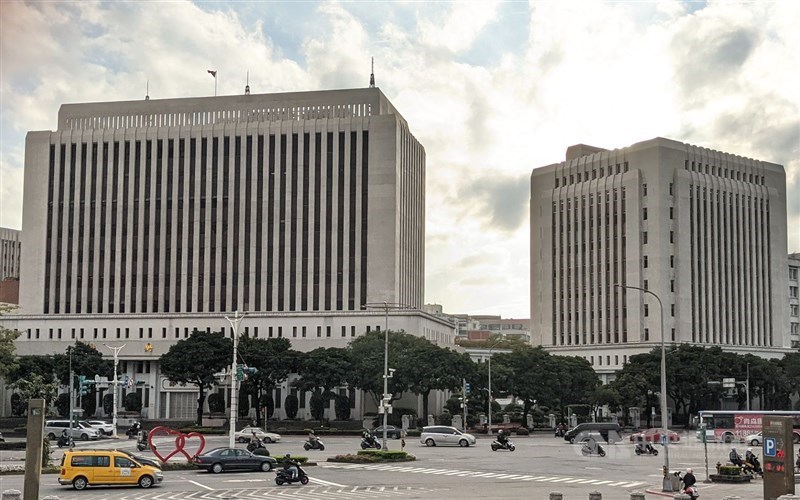Central bank forecast to leave interest rate unchanged for 6th straight quarter

Taipei, Sept. 8 (CNA) Taiwan's central bank is expected to keep its key interest rates unchanged for the sixth consecutive quarter at a policymaking meeting scheduled for Sept. 18, as uncertainties stemming from U.S. tariff policies persist despite a strong likelihood of a rate cut by the U.S. Federal Reserve this month, according to economists.
Cathay United Bank chief economist Lin Chi-chao (林啟超) told CNA that the central bank needs more time to assess how Taiwan's exports will perform following the U.S. "reciprocal tariffs," which took effect Aug. 7 and include a 20 percent levy on Taiwanese goods, before deciding on monetary policy.
Lin said the central bank is likely to wait until December, when more economic data is available, before considering an adjustment to rates.
In June, the central bank left its policy rate unchanged, with the local discount rate holding at 2 percent -- the highest in 15 years.
Lin noted that while U.S. tariffs have weighed on some traditional industries, Taiwan's technology sector has remained resilient, continuing to expand capital spending to meet global demand. This prompted the Directorate General of Budget, Accounting and Statistics to raise its 2025 GDP growth forecast to 4.45 percent from 3.10 percent.
"It is hard for the central bank to follow the Fed and cut interest rates now," Lin said. "The bank needs more economic data to evaluate when to begin a preventive rate-cut cycle."
Agreeing with Lin, Wu Meng-tao (吳孟道), head of the sixth research division at the Taiwan Institute of Economic Research, said he does not expect the central bank to ease monetary policy until the first quarter of next year.
Wu added that a Section 232 investigation launched by Washington in April under the Trade Expansion Act of 1962 could pave the way for tariffs on semiconductors. He said even if Taiwan Semiconductor Manufacturing Co. and other industry heavyweights with U.S. investments secure exemptions, many smaller firms in the supply chain may not.
"If the central bank cuts interest rates now, it will have fewer tools later to mitigate the impact of potential semiconductor tariffs," Wu said.
Meanwhile, market observers said it will be worth watching how the central bank responds to the government's recent move to ease rules on the "mortgage program 2.0" for young homebuyers, launched in August 2023.
Last week, the Cabinet announced that mortgages under the subsidy program will be excluded from restrictions under the Banking Act, which caps the total value of loans extended for residential and commercial construction at 30 percent of a bank's total deposits and issued debentures.
The eased rules will allow banks to extend more mortgages to young borrowers, supporting the housing market and pushing up home prices.
In September 2024, the central bank imposed a seventh round of selective credit controls, which property dealers described as the strictest in history, further capping homebuyer mortgage levels in an effort to rein in soaring housing prices.
However, Lin said the credit controls have so far proven effective, while the central bank also needs time to assess the impact of the relaxed mortgage rules.
- Society
Taiwan reports 276,000 job vacancies, manufacturing hit hardest
09/08/2025 07:16 PM - Business
Louisa Coffee to submit OTC listing application next year: Chairman
09/08/2025 06:57 PM - Society
Taiwan coast guard vessel returns after 46-day fisheries patrol
09/08/2025 06:34 PM - Science & Tech
Czech science minister arrives in Taiwan for SEMICON
09/08/2025 06:02 PM - Sports
Teng Kai-wei suffers fourth loss in Giants' 4-3 defeat to Cardinals
09/08/2025 05:59 PM